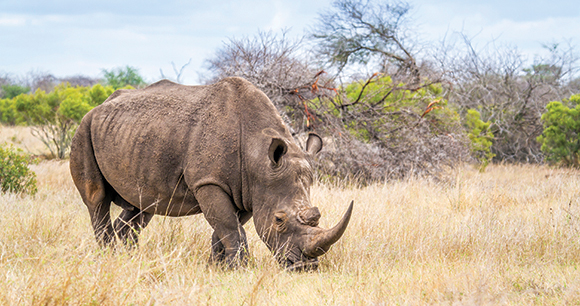Each year, millions of wild animals, including imperiled species, fall victim to an illegal wildlife trade with an annual estimated value between $7 billion and $20 billion. Wildlife trafficking causes population declines and results in immense suffering whenever live animals are involved. Combatting this trade is difficult, as poachers are often better equipped than enforcement personnel, employ constantly evolving smuggling strategies, and are often enabled by corruption within the judiciary and enforcement agencies.

In some countries, wildlife protection organizations help agencies combat wildlife trafficking. Two such organizations are Eco Activists for Governance and Law Enforcement (EAGLE) and Saving the Wild (STW), both supported by AWI.
EAGLE and its subsidiaries are active in nine African countries (Burkina Faso, Cameroon, Congo, Gabon, Guinea, Ivory Coast, Senegal, Togo, and Uganda), working to combat illegal wildlife trade by gathering intelligence, planning enforcement operations, and exposing corruption. In 2021 and 2022, it facilitated the arrest of over 300 wildlife criminals (including traffickers of elephants, pangolins, big cats, and primates), rescued 20 primates, and exposed 16 incidents of corruption.
Since 2016, STW-collected intelligence has led to the arrest of several rhino poachers in South Africa and Mozambique. It also exposed corruption within South Africa’s judiciary and its wildlife enforcement units, resulting in the suspension, removal, or arrest of judges, magistrates, and rangers. STW’s work has helped contribute to a decline in rhino poaching in South Africa from approximately 1,200 in 2014 to less than 450 in 2022.